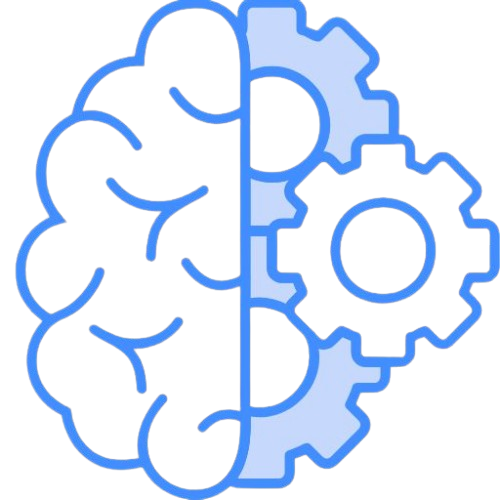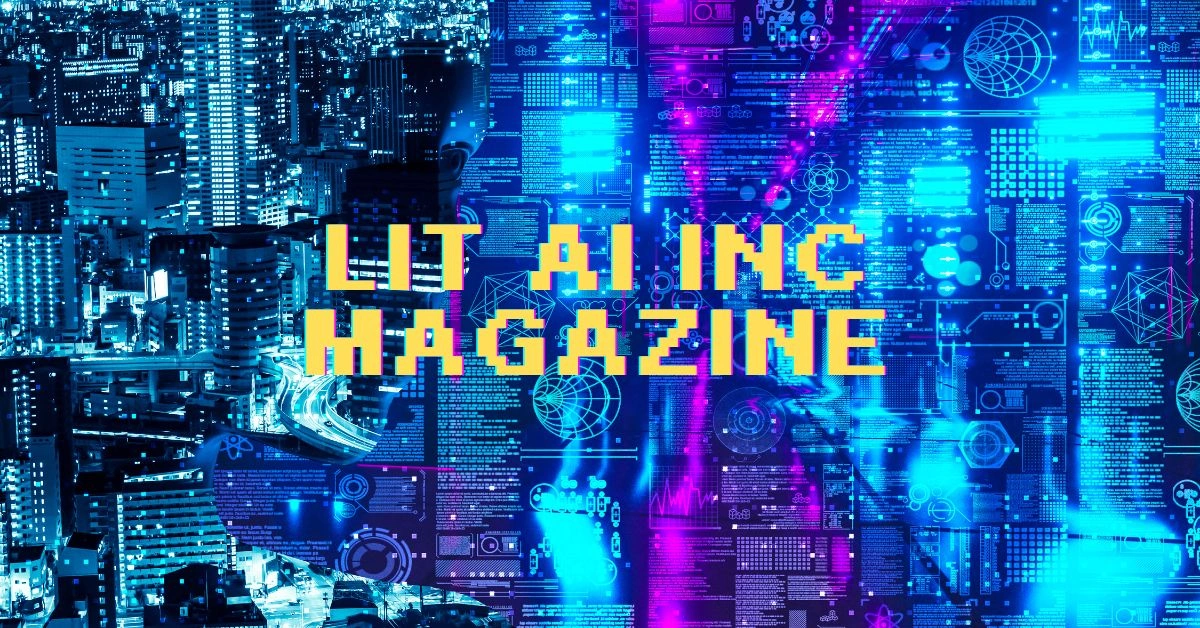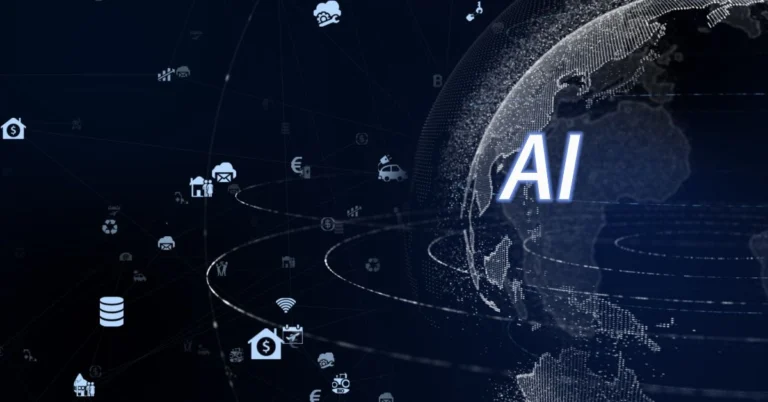Exploring AI’s Impact on Storytelling: Insights from Lit AI Inc Magazine
Artificial intelligence in literature is transforming the way stories are created. Writers, artists, and publishers are exploring AI storytelling to enhance their creative process. This shift is redefining traditional storytelling and creative writing.
Lit AI Inc Magazine is a platform that explores AI’s role in literature and storytelling. It highlights how AI-generated stories are revolutionizing the publishing world. The magazine brings together experts, writers, and tech enthusiasts to discuss the impact of AI creative writing.
For centuries, storytelling has been a human-driven craft. Now, AI writing tools are helping writers generate ideas, improve narratives, and even co-write books. Some see this as a breakthrough in AI authorship, while others worry about losing the human touch in literature.
AI in publishing is also making content creation more efficient. Machine learning in writing allows AI-driven storytelling to become more engaging. As AI-assisted writing evolves, it raises ethical and creative debates.
Many are excited about these advancements, while others question the role of AI literature magazines in promoting AI-generated content. Despite these concerns, AI in storytelling is shaping the future of creative writing.
| Aspect | Fact | Figure |
|---|
| AI in Creative Writing | AI tools are being used for brainstorming, plot development, and editing to improve narratives. | AI-driven writing assistance enhances productivity, creativity, and efficiency. |
| AI’s Impact on Storytelling | AI is enhancing the creative process by providing new ways to generate ideas and structure narratives. | AI writing software offers real-time feedback and suggestions for improvement. |
| AI-Generated Content | AI-generated content is being published, though authenticity and emotional depth are debated. | AI content creation is seen as both an opportunity and a challenge due to concerns over originality. |
| AI as a Writing Assistant | AI writing software refines drafts, suggests edits, and improves readability, helping writers enhance their stories. | AI in content creation increases productivity and allows for more efficient writing and editing. |
| AI in Publishing | AI helps publishers analyze market trends and predict popular genres, streamlining content curation and distribution. | AI enhances decision-making and market analysis, leading to smarter content distribution and publishing strategies. |
| Ethical Concerns | AI-generated stories raise concerns about authorship, ownership, and plagiarism. | The ethical challenges include ensuring AI-generated content remains original and does not unintentionally copy existing works. |
| Human Creativity vs. AI | AI supports writers but cannot replace human creativity, emotional depth, and personal experience in storytelling. | AI is viewed as a tool that enhances human creativity, rather than replacing it. |
| Future of AI in Literature | The role of AI in literature will continue to evolve, with AI tools becoming integral to the writing and publishing processes. | As AI technology advances, it will play a bigger role in refining the writing process while preserving human imagination and creativity. |
| Role of AI Literature Magazines | Magazines focusing on AI-generated content showcase how AI-driven storytelling is changing the literary landscape. | AI literature magazines highlight both the potential and the challenges of AI-assisted writing. |
| AI as a Creative Ally | AI should be used as a partner in storytelling, helping writers experiment with new ideas and refine their craft. | Writers use AI to refine storytelling techniques while maintaining their unique artistic voice. |
| AI in Cultural Production | AI-driven storytelling is influencing how stories are told and how content is distributed in the publishing world. | AI content creation is becoming a growing area of interest within the broader scope of cultural production and creativity. |
| AI’s Role in Writer Productivity | AI writing tools increase efficiency by suggesting edits, enhancing readability, and brainstorming ideas. | AI writing software is helping writers save time and increase productivity in their creative processes. |
| AI as a Supportive Tool | AI in narrative development offers structure and plot suggestions, but emotional depth comes from human authors. | Writers use AI to enhance their craft, but human insight remains vital to creating authentic and emotionally resonant stories. |
How AI is Reshaping Literature and Storytelling
The Evolution of AI in Creative Writing
AI in creative writing has advanced significantly. At first, it was used for simple grammar corrections and text predictions. Now, natural language processing in literature enables AI-generated literature to develop complex narratives.
AI writing assistance helps authors brainstorm new ideas. Neural networks in storytelling analyze patterns from bestsellers to suggest engaging plot developments. This makes AI-assisted writing a valuable tool for both new and experienced writers.
AI-Generated Stories: Success and Challenges
AI-generated content is being published and sold worldwide. AI literature magazines and online platforms showcase AI-driven storytelling projects. While some AI-generated books have gained popularity, AI in arts and literature still struggles with deep emotions and originality.
Many readers appreciate AI content creation, but concerns remain about authenticity. AI in media and publishing continues to evolve, but human creativity remains essential. The key challenge is to balance AI-generated literature with human storytelling.
AI as a Writing Assistant, Not a Replacement
AI writing software helps writers refine their work. AI in content creation suggests edits, improves readability, and enhances storytelling techniques. Writers use AI-assisted writing to save time and boost productivity.
Despite AI’s capabilities, it cannot replace human creativity. AI in narrative development can provide structure, but emotional depth comes from human experiences. The best approach is to use AI in creative industries as a supportive tool rather than a replacement.
The Changing Role of Writers and Publishers
AI in publishing is transforming how books are marketed and sold. AI in cultural production helps publishers analyze market trends and predict popular genres. This allows for smarter content curation and distribution.
Some publishers experiment with AI-generated content, but human-authored stories still dominate the industry. While AI in storytelling innovation opens new possibilities, traditional storytelling remains valuable. The publishing world must find a balance between AI-driven and human-created literature.
A Platform for AI and Creativity
A Space Dedicated to AI in Literature
As AI in arts and literature grows, a dedicated platform is needed for discussion. Writers and creators are seeking guidance on using AI in creative processes. Many are eager to learn how technology can enhance storytelling rather than replace it.
Educational resources on AI in storytelling innovation help bridge the gap between creativity and technology. AI in cultural production is gaining traction, making AI-driven storytelling an important topic for discussion.
Bringing Writers, Publishers, and AI Experts Together
Many still believe AI is purely technical with no role in creativity. Thought leaders in AI in creative industries are proving otherwise. AI in narrative development shows that technology can work alongside human imagination.
Real-world examples of AI-generated stories highlight both opportunities and challenges. AI-assisted poetry, novels, and scripts are becoming more common. AI in media and publishing continues to expand, influencing how content is created and distributed.
Encouraging Innovation and Exploration
AI content creation is improving writer productivity. AI writing software provides new ways to refine storytelling techniques. Learning how to integrate AI in storytelling can open up exciting creative possibilities.
By promoting discussions on AI in creative industries, experts encourage responsible AI use. Writers are encouraged to view AI as a partner in storytelling. This mindset allows creatives to embrace AI in cultural production while maintaining their unique artistic voice.
The Debate: AI as a Creative Ally or a Threat?
AI as a Powerful Tool for Writers
Many see AI in creative writing as a valuable resource. AI in storytelling innovation helps writers craft engaging narratives. AI in media and publishing streamlines content distribution.
AI in creative industries enables authors to experiment with new ideas. AI writing assistance provides real-time feedback, enhancing writing skills. These tools make creative writing more accessible.
Concerns About AI Replacing Human Creativity
Some fear AI authorship will replace human storytelling. AI in narrative development can generate stories quickly, but originality remains a challenge. If publishers rely too much on AI in publishing, human creativity may be undervalued.
Emotional depth is another concern. AI writing software can structure a story, but it lacks personal experiences. True storytelling must come from real emotions and cultural understanding.
The Ethical Questions of AI-Generated Content
AI in literature raises ethical questions about ownership. Who holds the rights to AI-generated stories? AI in media and publishing must address these concerns to maintain integrity.
Plagiarism is another issue. AI content creation uses existing data, which may lead to unintentional replication. Writers and publishers must ensure AI-generated literature remains original.
The Balance Between AI and Human Creativity
AI in creative industries should be seen as an enhancement, not a replacement. AI in cultural production supports storytelling but does not replace human imagination. The best approach is to combine AI-driven storytelling with personal creativity.
Writers who use AI writing tools wisely can improve their craft. AI in creative writing allows for efficient editing and idea generation. Finding the right balance between AI assistance and human creativity is crucial.
The Ongoing Conversation in the Literary World
The debate over AI in storytelling is far from over. Some embrace AI-assisted writing, while others see it as a threat. As AI in arts and literature advances, discussions will continue.
AI literature magazines and publishing platforms play a key role in shaping this conversation. Writers, publishers, and tech experts must collaborate to navigate the evolving landscape. AI in cultural production will keep influencing how stories are told, but human creativity remains irreplaceable.
Conclusion
Artificial intelligence is undeniably transforming the landscape of literature and storytelling. While some embrace AI as a powerful tool that enhances creativity and streamlines the writing process, others remain cautious about its potential to replace human ingenuity. The evolution of AI in creative writing has introduced innovative tools that help writers refine their work, generate ideas, and explore new narrative possibilities. However, the debate about authenticity, emotional depth, and originality remains at the forefront of this technological advancement. As AI continues to influence the publishing world, it is essential to strike a balance between AI-driven storytelling and human creativity. Ultimately, AI should be viewed as an ally, not a replacement, helping writers and publishers to push the boundaries of storytelling while preserving the irreplaceable value of human experience.
How is AI changing the way stories are created?
AI is enhancing the creative process by providing tools for writers to brainstorm, develop narratives, and refine their writing. It helps in idea generation, plot development, and editing, making storytelling more efficient and diverse.
Can AI replace human authors in the future?
While AI can assist in writing and generate content, it lacks the emotional depth, originality, and personal experiences that human authors bring to their work. AI should be seen as a supportive tool, not a replacement for human creativity.
What are the ethical concerns related to AI-generated stories?
Ethical concerns include issues of authorship, ownership rights, and plagiarism. Since AI uses existing data to create content, it may unintentionally replicate existing works. Writers and publishers must address these issues to ensure AI-generated content remains original and ethically sound.
Is AI content creation a threat to traditional storytelling?
AI is transforming storytelling, but it is not a threat to traditional methods. While AI can streamline content creation and help with narrative development, human creativity and emotional depth remain essential to crafting meaningful stories.
What role does AI play in publishing?
AI is changing how books are marketed, distributed, and curated. Publishers use AI to analyze market trends, predict popular genres, and improve content curation. It allows for smarter decision-making but still complements human-authored stories.
Can AI writing software help new writers?
Yes, AI writing software can be an invaluable resource for new writers. It helps with brainstorming ideas, refining drafts, and offering real-time feedback to enhance storytelling techniques and improve writing skills.
How can writers use AI in their creative process?
Writers can use AI for idea generation, plot development, editing, and improving readability. AI can suggest ways to enhance storytelling, identify structural flaws, and provide new directions for narratives.
What is the future of AI in literature?
The future of AI in literature will likely see further integration into the creative process, with AI becoming a trusted tool for writers and publishers. As technology evolves, discussions on AI’s role in storytelling will continue, with a focus on maintaining a balance between innovation and human creativity.







